Special Report
These States Have the Least Restrictive Gun Laws
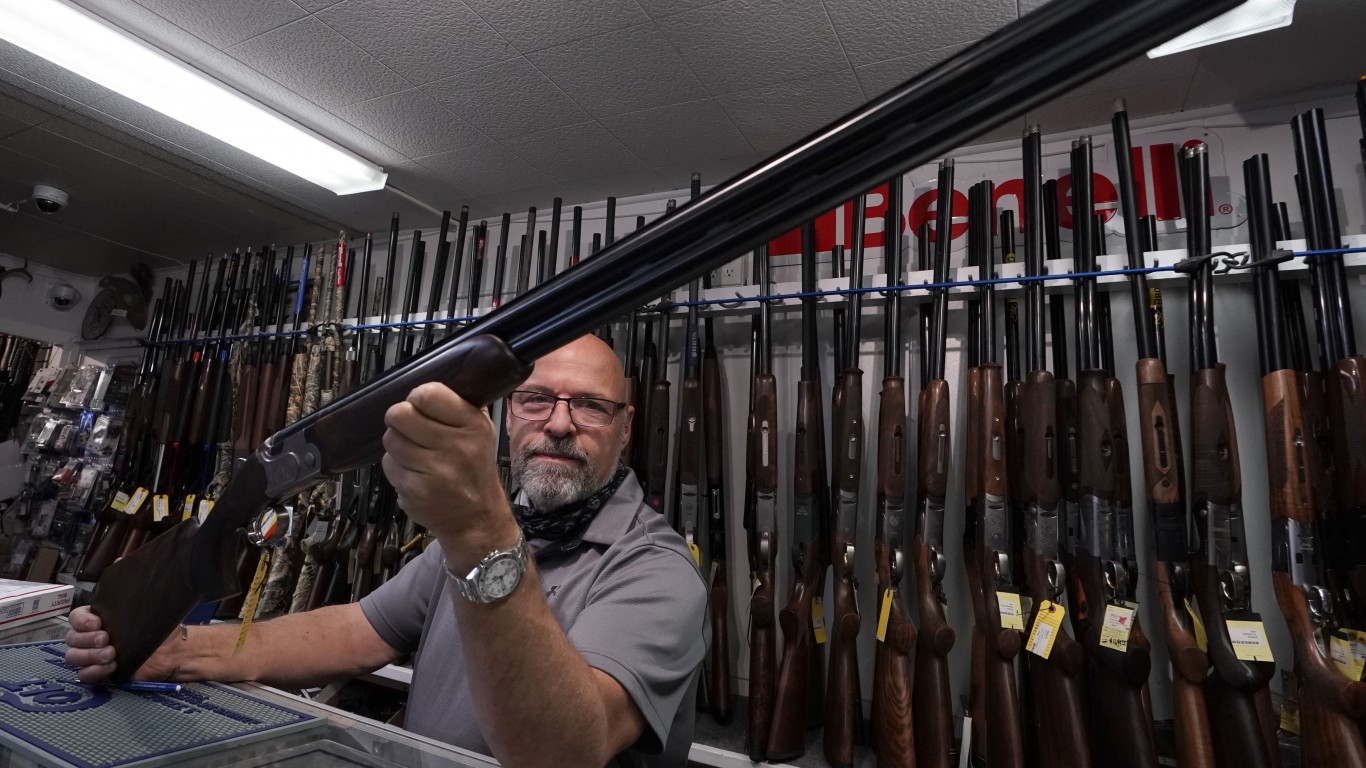
Published:
Last Updated:

Few issues in American politics are as polarizing as gun control. According to a recent survey from the Pew Research Center, 86% of likely Democratic voters say it is too easy to legally obtain a firearm in the United States, compared to only 34% of likely Republican voters. This partisan gulf in public opinion has meaningful practical implications.
Decades of political gridlock on Capitol Hill has largely prevented any significant new gun control legislation. While the federal government imposes some restrictions on the types of commercially available firearms and who can own them, state governments also have broad authority to set their own policies. This has resulted in a patchwork of state-level gun control regulations.
While some states have taken measures to strengthen background checks, raise ownership eligibility requirements, and ban assault weapons, most have done little to expand on federal gun laws. (Here is a look at the states where assault-style firearms are banned.)
Using the Annual Gun Law Scorecard from the gun violence prevention group Gifford Law Center, 24/7 Wall St. identified the states with the least restrictive gun control laws. The Gun Law Scorecard assigns each state a letter grade rating the strength of their firearm laws. Grades are current as of early January 2024 and range from “A,” for the states with the strongest laws, to “F,” for the states with the weakest. Gun laws noted in this story are also from Giffords Law Center. They are not exhaustive, however, and are only broad guidelines. Legal nuances can vary at the state and local levels.
Each of the 21 states on this list received a grade of “F.” None of these states, listed in alphabetical order, are in the Northeast and the largest share — 10 in total — are Southern states.
In most of these states, prospective gun buyers can legally bypass federal background check requirements by purchasing from a private seller, gun owners can carry concealed firearms in public without a permit, and law enforcement cannot take a firearm from a person in crisis. Gun control laws in these states tend to be minimal, and rarely go beyond child access prevention and ownership restrictions for domestic violence offenders and individuals with certain mental illnesses.
Gun control laws are designed to keep firearms out of the wrong hands and reduce the risk of deadly gun violence. In the absence of comprehensive control policies, rates of gun violence tend to be higher in the states on this list. Based on 2021 firearm mortality data from the Centers for Disease Control and Prevention, nine of the 10 states with the highest rates of deadly gun violence rank on this list. (Here is a look at the states where gun deaths are increasing the fastest.)
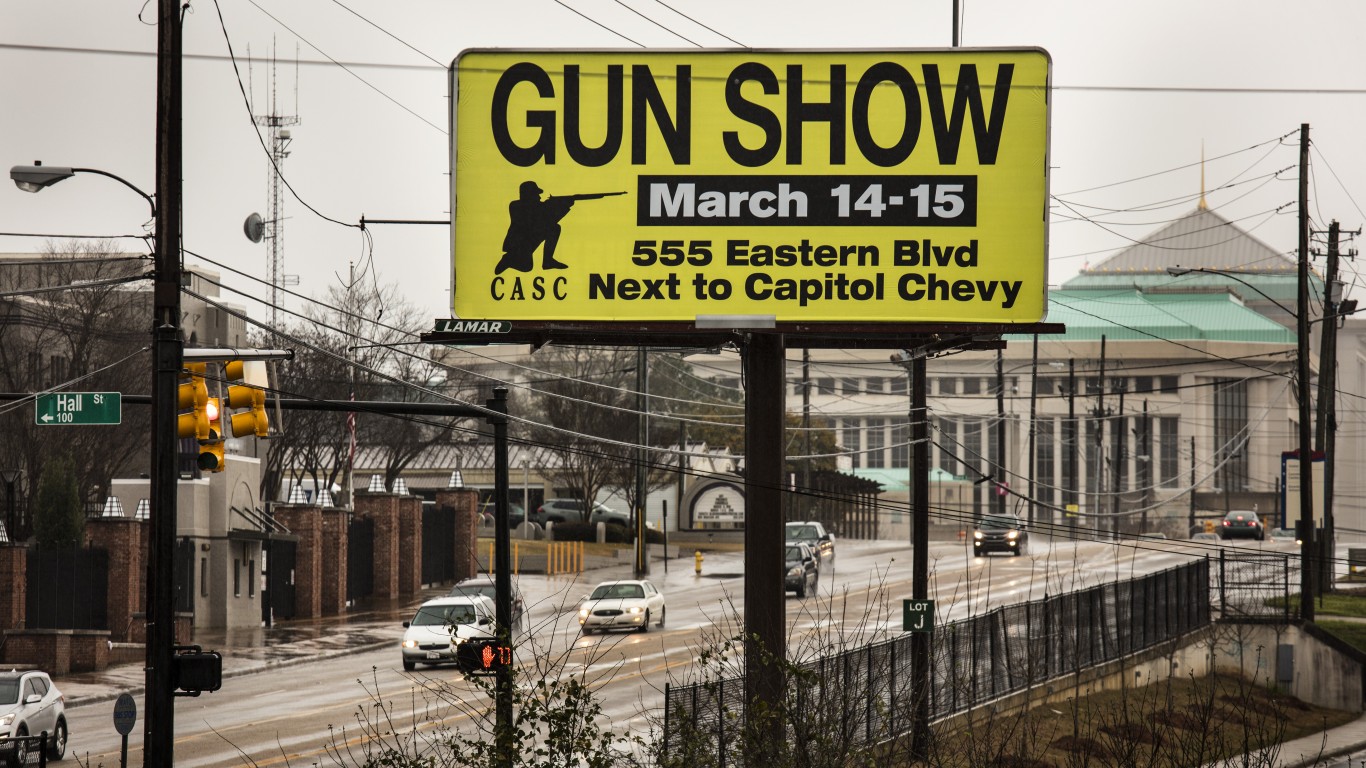
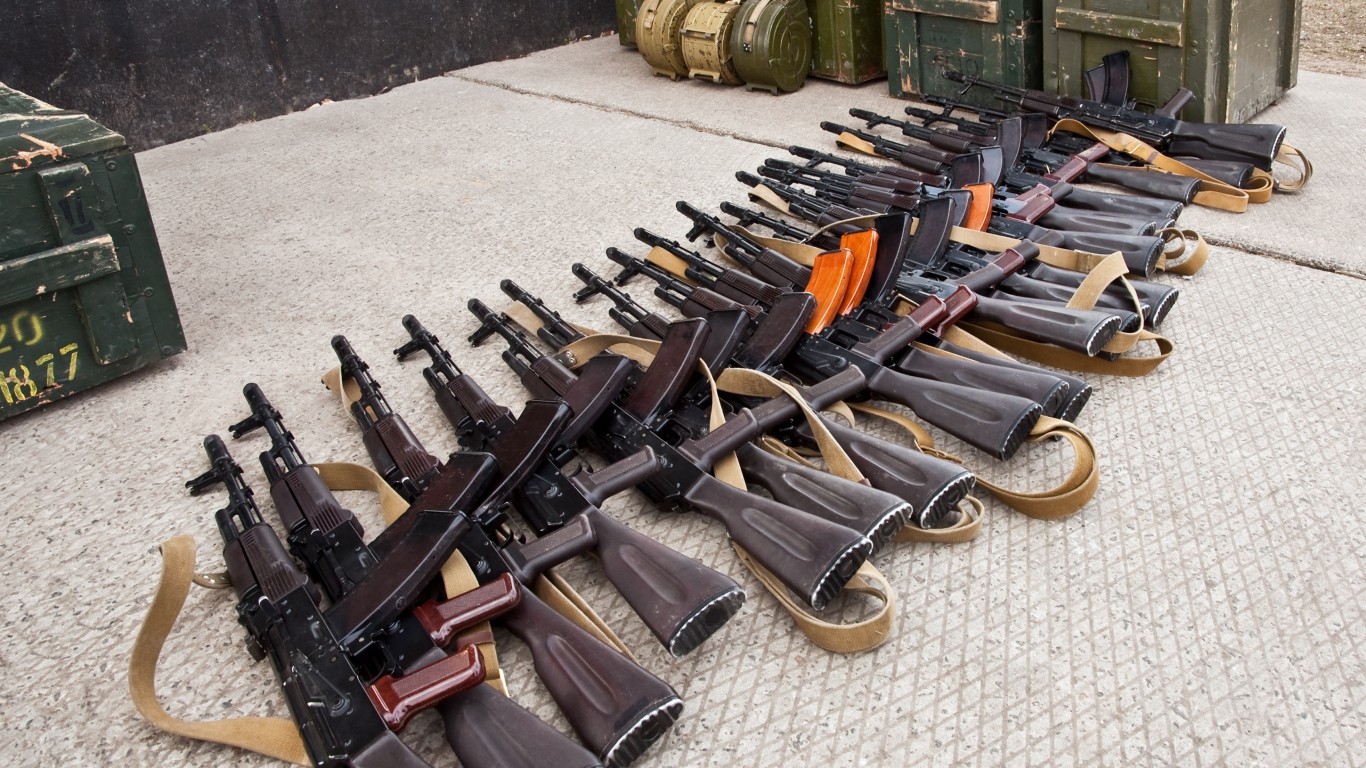
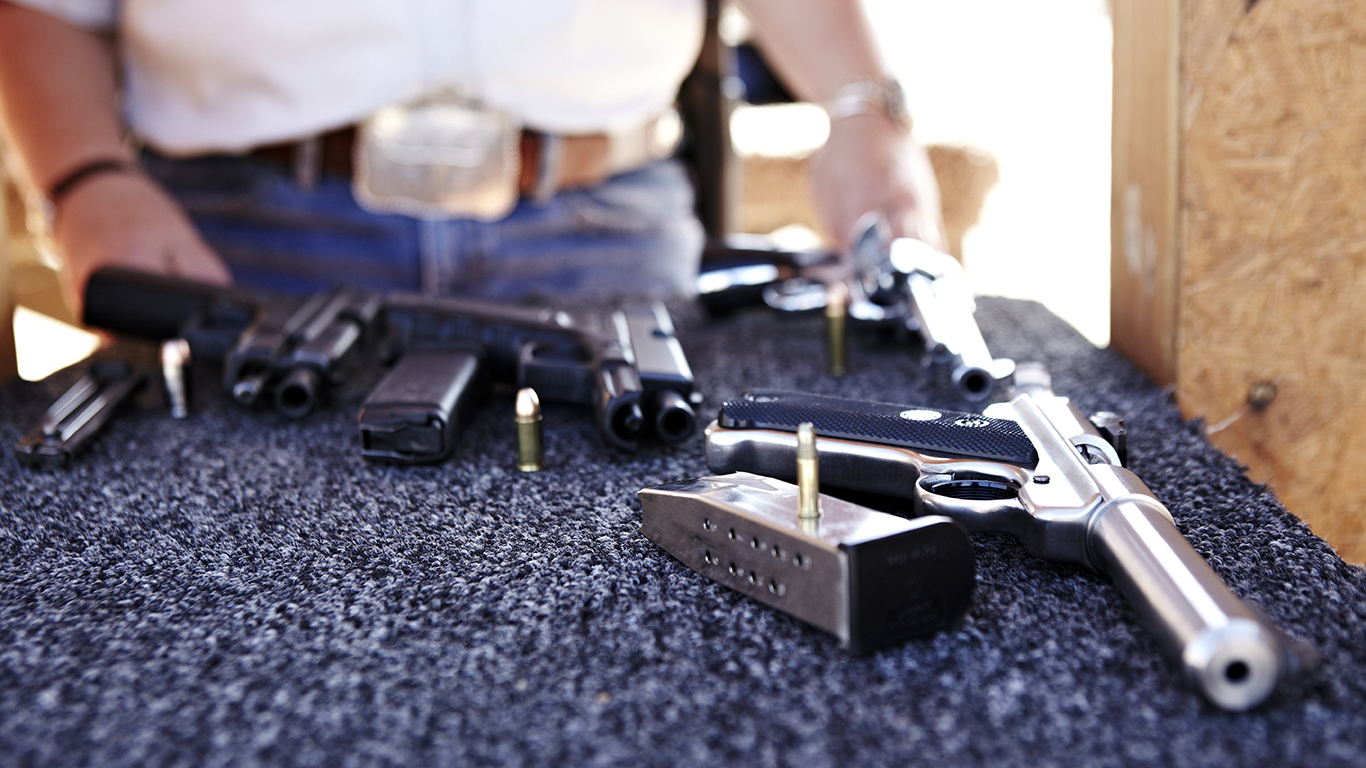
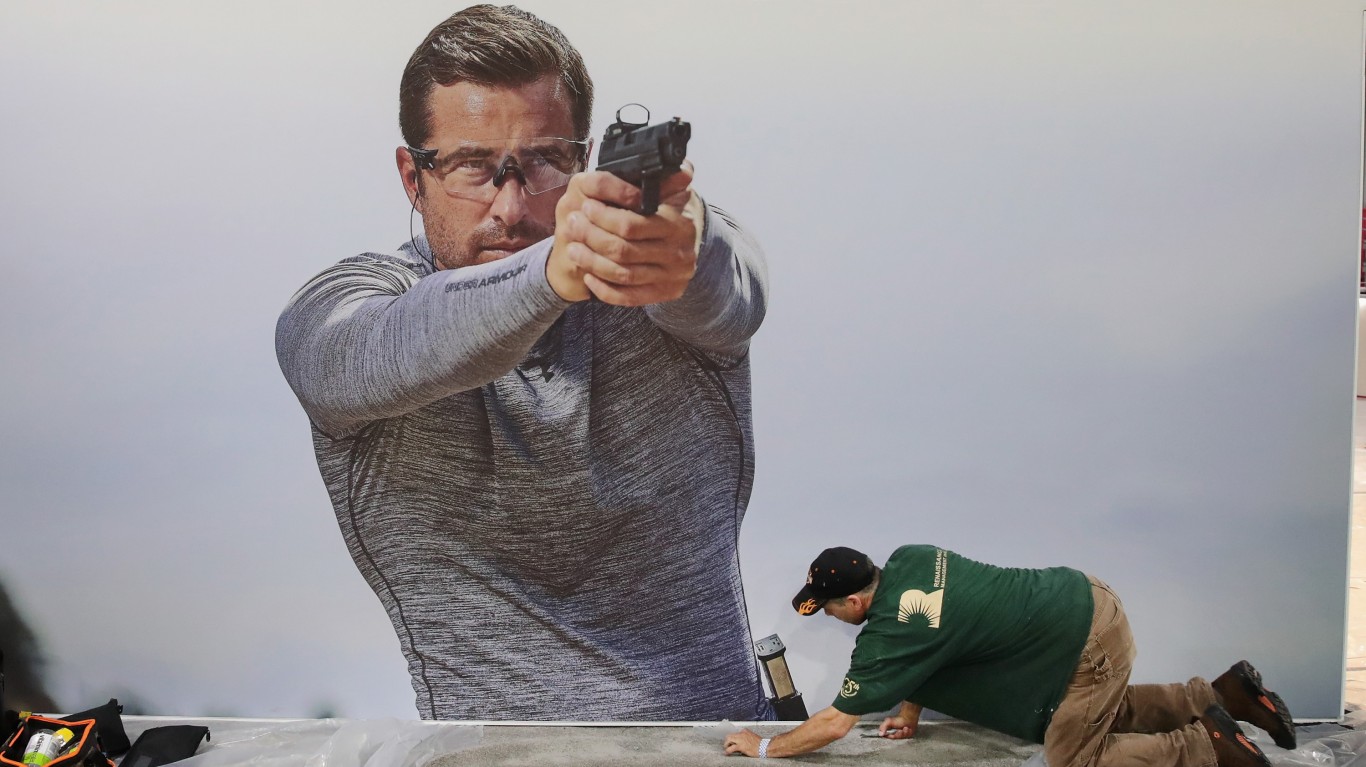


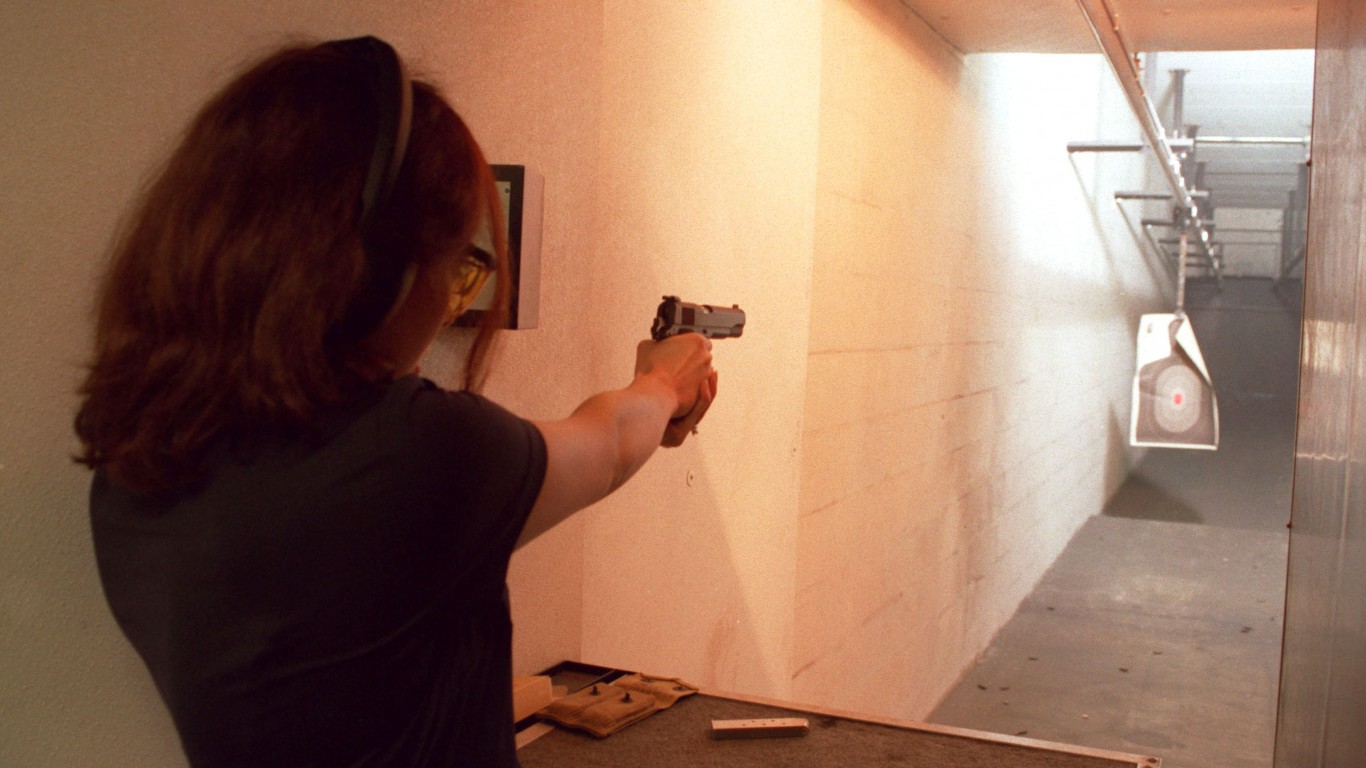
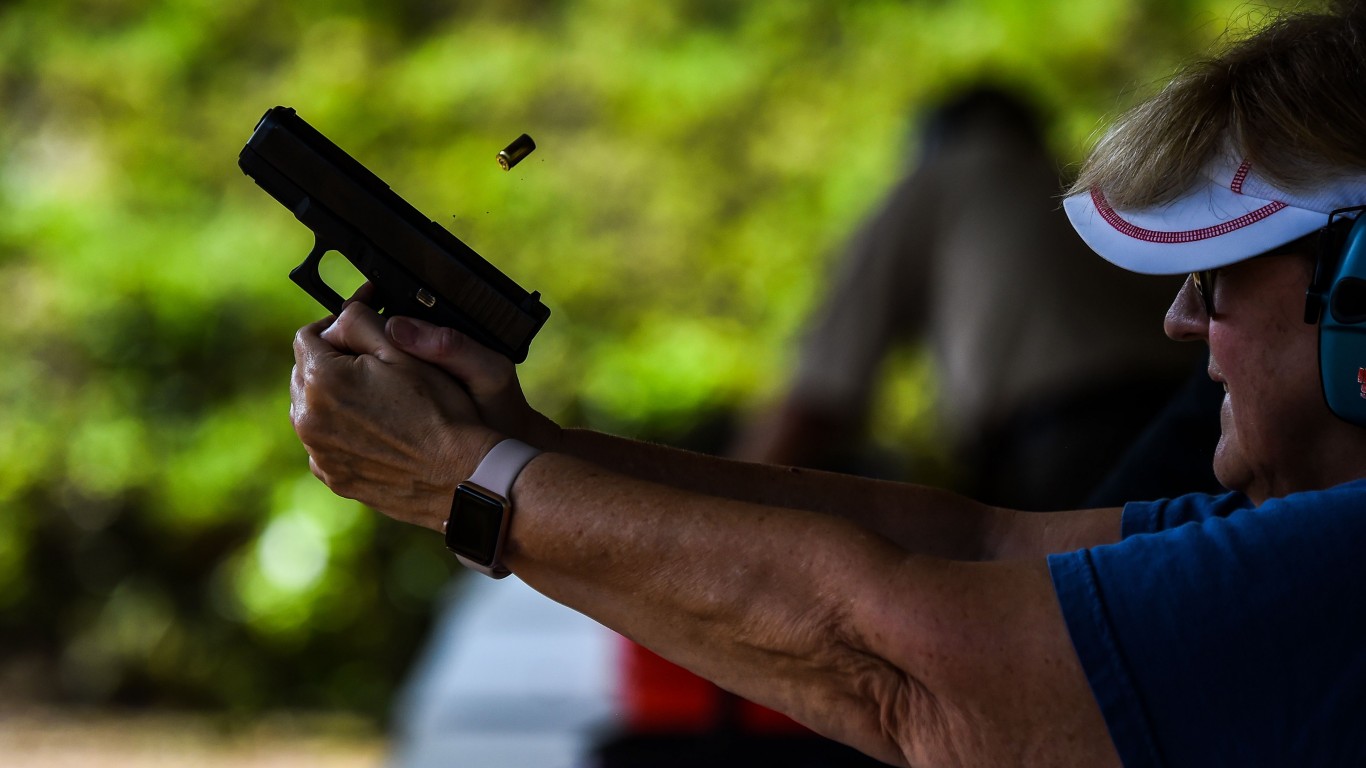
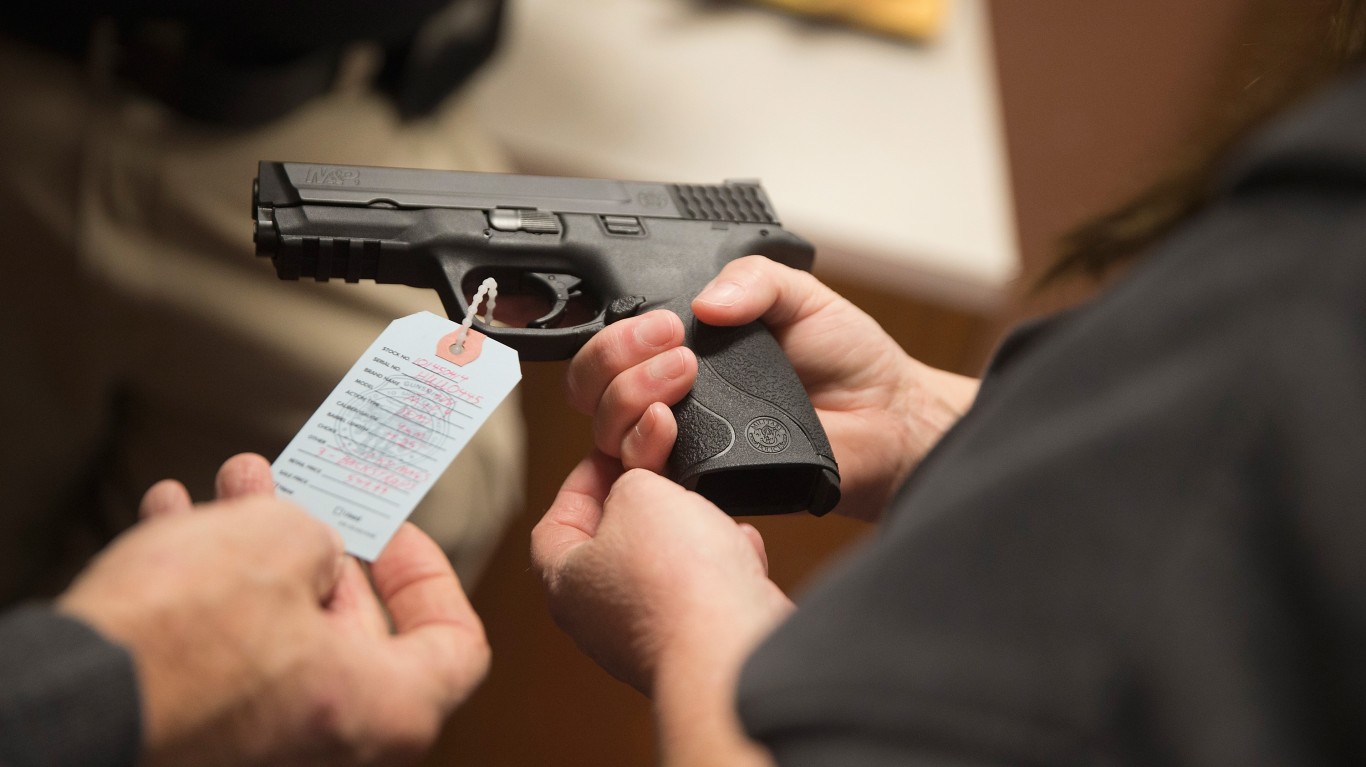




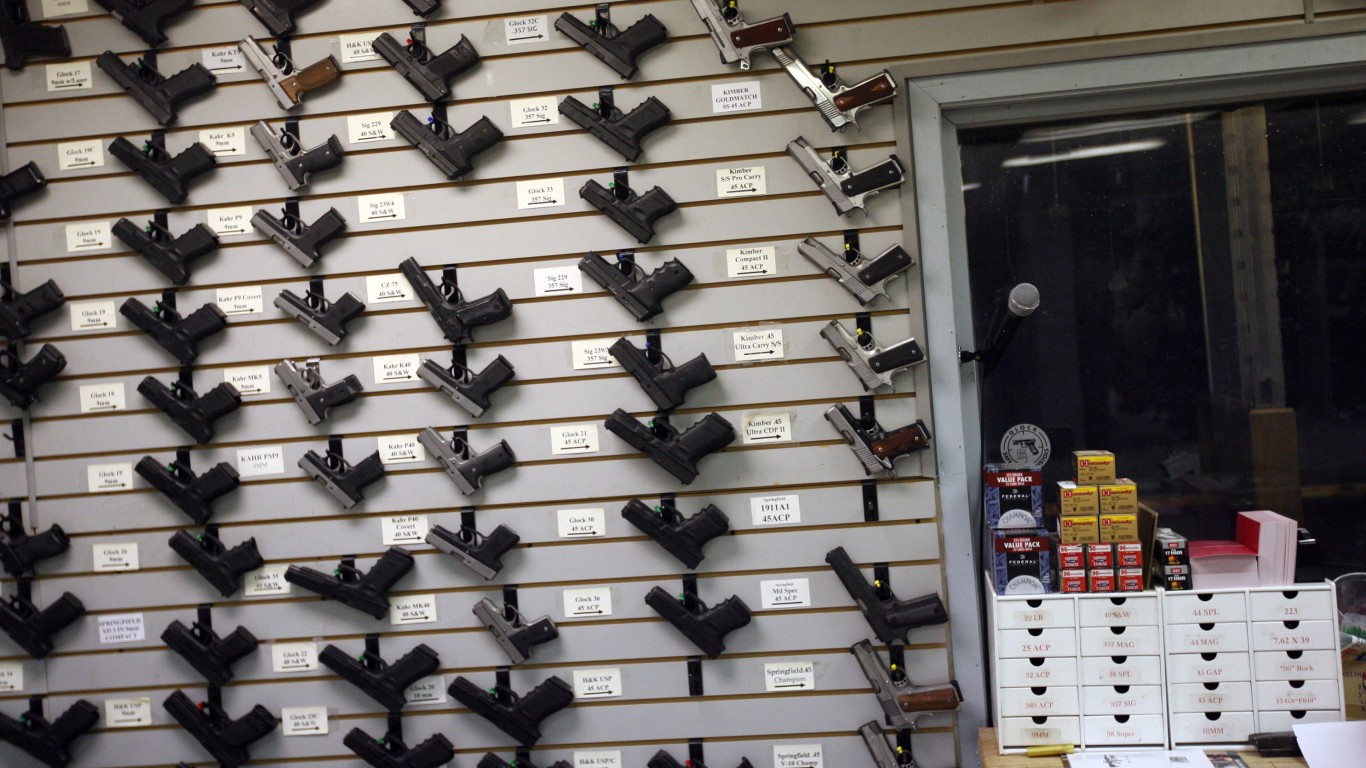
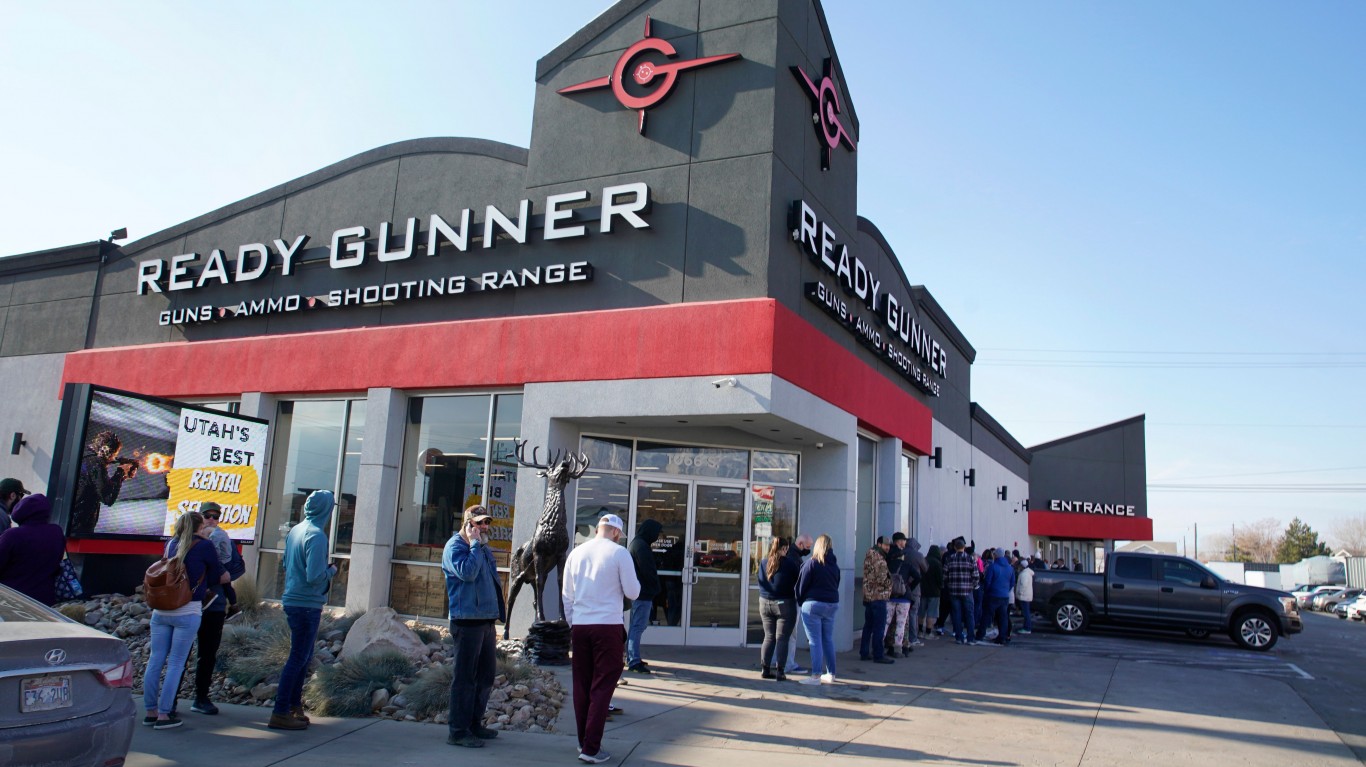


Credit card companies are at war. The biggest issuers are handing out free rewards and benefits to win the best customers.
It’s possible to find cards paying unlimited 1.5%, 2%, and even more today. That’s free money for qualified borrowers, and the type of thing that would be crazy to pass up. Those rewards can add up to thousands of dollars every year in free money, and include other benefits as well.
We’ve assembled some of the best credit cards for users today. Don’t miss these offers because they won’t be this good forever.
Flywheel Publishing has partnered with CardRatings for our coverage of credit card products. Flywheel Publishing and CardRatings may receive a commission from card issuers.
Thank you for reading! Have some feedback for us?
Contact the 24/7 Wall St. editorial team.